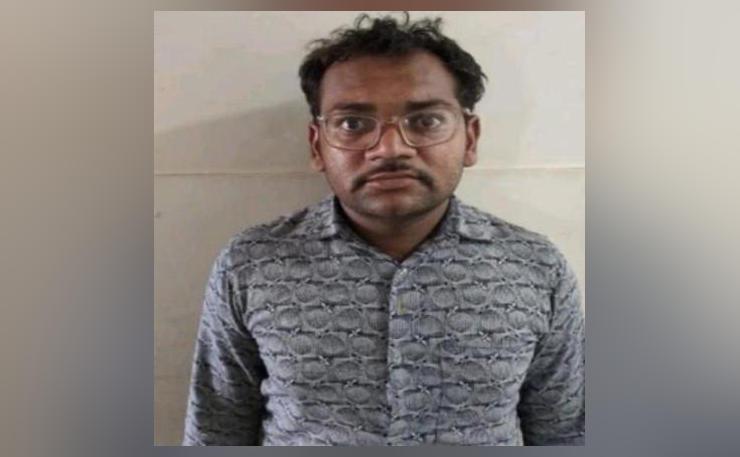
Health Worker Arrested for Spying: Sent New IAF & BSF Sites’ Visuals to Pak, Got ₹40,000
In a shocking revelation, a health worker from Gujarat has been arrested for spying and sharing crucial information with a Pakistani agent. Sahdev Singh Gohil, a resident of Ahmedabad, was arrested by the Gujarat police for sharing sensitive information related to the Indian Air Force (IAF) and Border Security Force (BSF) sites with Pakistan.
According to reports, Gohil, a 35-year-old health worker, was paid ₹40,000 in cash by an unidentified man for providing key information about the newly-constructed or under-construction sites of the IAF and BSF. The information was shared through WhatsApp, which was activated on a SIM card purchased by Gohil using his Aadhaar card.
The police investigation revealed that Gohil had been in touch with a Pakistani agent for several months, exchanging sensitive information about the military installations. The information shared by Gohil included photos and videos of the IAF and BSF sites, which were apparently used by Pakistan to plan their future attacks.
Gohil’s arrest is a significant blow to the national security, as it highlights the vulnerability of sensitive information being leaked to foreign agents. The police investigation is still ongoing, and it is not clear whether Gohil was acting alone or was part of a larger network of spies.
The police claim that Gohil was motivated by greed, as he was paid ₹40,000 for sharing the information. However, the exact nature of his relationship with the Pakistani agent and the extent of the damage caused by the leak is still unclear.
Gohil’s arrest is a wake-up call for the government and the security agencies, as it highlights the need for stricter vigilance and surveillance in the country. The incident also raises questions about the security measures in place to prevent such leaks.
The Indian Air Force and Border Security Force are crucial components of the country’s defense mechanism, and any leak of sensitive information can have serious consequences. The fact that Gohil was able to share information about these sites with Pakistan raises concerns about the vulnerability of the country’s defense infrastructure.
The police investigation is still ongoing, and it is likely that more details about Gohil’s activities will emerge in the coming days. The government and the security agencies must take immediate action to prevent such leaks in the future and protect the country’s national security.
In conclusion, the arrest of Sahdev Singh Gohil for spying and sharing sensitive information with Pakistan is a serious concern for the country. The incident highlights the need for stricter vigilance and surveillance in the country and raises questions about the security measures in place to prevent such leaks.






